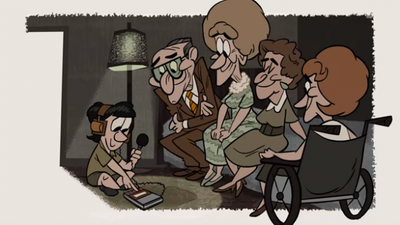DOWNLOAD VIDEO
An investigation has
revealed
that staff facilitated nearly two decades of academic fraud at one of the country’s most prestigious schools in an effort to boost athletes’ grades.
The University of North Carolina (UNC), where the fraud occurred, is ranked 30
th
in the nation by U.S. News and World Report and admits approximately 27 percent of students who apply. However, learning specialist Mary Willingham said she saw athletes enter the college with reading levels lower than sixth grade.
Before 2003, the NCAA required athletes to score a certain level on standardized tests like the SAT or ACT before entering college. But in 2003, a new policy revoked that rule, opening colleges to athletes that would not have made the cut-off before.
The new policy also required each team to graduate half its athletes; schools that failed to do so would not be allowed to compete postseason, putting millions of dollars at risk.
In an effort to avoid that scenario, advisers directed UNC athletes into paper “classes” that did not require attendance or testing, only a paper at the end of each semester.
These classes existed from 1993 to 2011 and involved 3,100 students who received credit for classes that never met in person or conducted tests. Of these students, 49 percent were student athletes, though student athletes only comprised four percent of the student body as a whole.
The African Studies Department office administrator originally established the classes, which academic advisors regarded as a way to boost athletes’ GPAs.
This office administrator would manage the classes and grade the papers that students turned in at the end of the semester, but no professors were involved in the process, according to Kenneth Wainstein, the prosecutor who led the investigation.
The university did not oversee these classes, which allowed them to continue for nearly two decades, according to Wainstein. “It just wasn’t detected at the higher levels of the administration,” he said.
Since then, UNC has instituted greater amounts of academic oversight, and nine employees have been fired or disciplined so far for their role in the fraud.
Warm up questions
- What is fraud? Is it deliberate or accidental? Can you think of any examples of fraud?
- What different challenges do student athletes face compared to their peers?
- What is the best way to find out if a student has learned something from class?
- What do you think it means for someone to be reading on a fourth-grade level?
Critical thinking questions
- Were you surprised to hear that students in college were reading at an elementary school level? What are some of the ways that would be a barrier to success in high school and in college?
-
At one time, the NCAA had a policy that required student athletes to have a minimum SAT and ACT score or they could not compete in college. Furthermore, half the athletes on each team would have to graduate or the schools wouldn’t be allowed to compete in the postseason. Since 2003, both regulations have been removed.
- Why do you think the NCAA dropped them?
- How do you think that has impacted college student athletes?
- What were the risks and benefits of the student athlete education program to athletes at UNC and other schools like them? Should there be some exceptions for athletes or should they be held to the same standard of other students?


